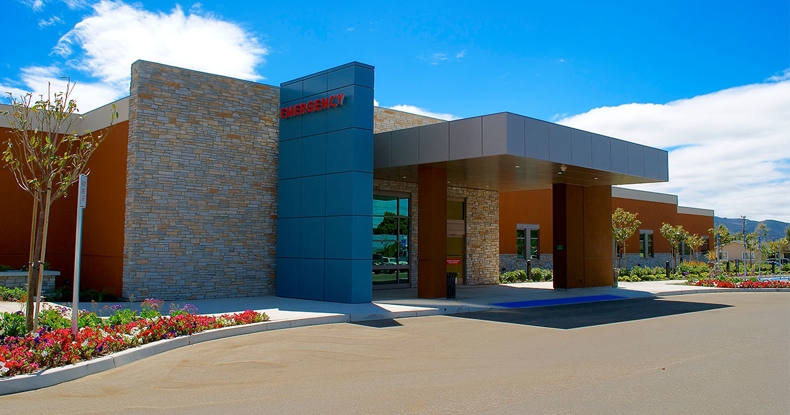Therapeutic Recreation Week
- Category: Health & Wellness, Rehab
- Posted On:
- Written By: LVMC

Therapeutic Recreation Week is an annual observance that raises awareness about the benefits of recreational therapy services in recovery.
Recreational therapy is a special form of therapy that can treat and help you recover from a physical, emotional, or mental health issue.
National Therapeutic Recreation Week is observed every year during the second week of July. Continue reading to learn more about this yearly observance, how recreational therapy works, and how to contact Lompoc Valley Medical Center if you or your loved one needs treatment for a physical or psychological health condition.
What Is Therapeutic Recreation Week?
National Therapeutic Recreation Week was established by the National Therapeutic Recreation Society in 1984. Since then, it has been observed and celebrated every year during the second week in July.
The purpose of this yearly observance is to raise public awareness about the benefits and availability of recreational therapeutic services and programs. This type of therapy can complement many traditional interventions for physical and psychological health conditions. It can be a fulfilling and enjoyable treatment for those struggling with and trying to manage various health problems.
What Is Recreational Therapy?
Recreational therapy uses leisure activities to help people achieve improved overall health and wellness and to recover from physical and mental health conditions including mood disorders, substance use disorders, and brain injuries, among many others.
These therapies are designed to restore your ability to function in society and lead a healthier, more productive lifestyle. In addition, the activities used in recreational therapy can help you improve social, family, and interpersonal skills, along with your overall health and quality of life.
Recreational therapies are undoubtedly enjoyable for many patients, and these therapies are carefully structured to teach you how to effectively manage and live with your condition, especially chronic, lifelong conditions such as depression and physical disability.
Recreational therapy can often reduce the isolation you may feel as a result of coping with your medical condition, as it connects you with peers who can relate to your situation and help you discover new hobbies and interests.
Doctors who specialize in recreational therapy usually recommend or choose activities aligned with your own interests and challenges as they relate to your condition. They may also collaborate with your other healthcare providers to develop a customized treatment plan that meets your unique recovery needs.
Recreational therapy is used in a wide variety of settings, including:
- Hospitals
- Assisted living communities
- Skilled nursing facilities
- Community and recreational centers
- Schools
- Behavioral and mental health facilities
- Addiction treatment centers
- Sports programs
- Correctional facilities
What Are Common Types of Recreational Therapy?
Recreational therapy is available in many different forms — all of which can be specifically tailored to you or your loved one in need of therapy. Below are activities commonly offered as part of recreational therapy.
Art Therapy
Art therapy allows you to express yourself creatively through drawing, painting, sketching, photography, and many other art forms to enhance your physical, mental, and emotional well-being. Art therapy can help you relieve stress, develop healthy coping skills, and increase your self-awareness and self-esteem. Art therapists will work with you to analyze and interpret your final creations and discuss how they make you feel and how they play a role in your recovery.
Music Therapy
Music therapy allows you to express your thoughts and feelings through various music-related activities, including playing instruments, singing, and writing and analyzing song lyrics. Music therapy can help you reduce stress and pain, improve your communication skills, and enhance your memory. This type of therapy can be especially therapeutic for those who need help improving their motor skills, as it may require following music on the page and keeping an eye on the music therapist for cues.
Nature and Wilderness Therapy
Nature therapy involves spending time in a natural, outdoor setting with a therapist or group and performing activities such as hiking, camping, or observing wildlife. Nature and wilderness therapy can help you de-stress, refresh your mind, and increase your self-awareness.
Gardening and Horticulture Therapy
Gardening therapy is another activity that helps you connect and interact with nature to reduce stress and increase self-awareness. This therapy allows you to handle and care for plants, boosting your self-esteem and giving you a sense of purpose. Gardening and horticulture therapy can take place one-on-one or in groups and also allows you to exercise and learn about various types of plants.
Equine Therapy
Equine therapy, also known as horse-assisted therapy, allows you to interact with and care for horses. Horses are pack animals that can pick up on your emotions and respond to them accordingly, which can give you insight into how your emotions and behaviors may affect others. Equine therapy may involve activities including riding horses, feeding horses, and brushing horses. The horses used in equine therapy are carefully trained to work with and rehabilitate patients who have physical disabilities and mental and behavioral health disorders.
Other types of activities included in recreational therapies are:
- Drama and storytelling
- Creative writing
- Sports
- Board games
- Video games
- Cooking
- Bowling
- Writing and journaling
What Can Recreational Therapy Do for Your Health?
Recreational therapy offers countless direct and indirect benefits for your physical, mental, and emotional health. Nearly anyone with any type of health condition can benefit from this therapy in at least one way. Below are some of the many ways recreational therapy can improve your health.
It Reduces Pain and Depression
Any type of physical activity including those used in recreational therapy such as hiking, dancing, and gardening, releases natural “feel-good” chemicals in your body called endorphins. Endorphins are also released when you interact with others in a social setting or when you express yourself creatively, such as through art or music.
Endorphins are natural pain relievers, which is why you may feel better after going for a run or spending a fun afternoon with friends. The release of endorphins you experience during recreational therapy can help reduce your physical pain and symptoms of depression.
It Increases Your Confidence and Self-Esteem
Health conditions including disabilities and mood disorders can often reduce your confidence and self-esteem to delay your recovery. The activities you perform in recreational therapy can give you a boost in these areas because of how they can make you feel accomplished and proud, and give you a renewed sense of purpose.
It Increases Your Strength and Fitness Level
Many activities in recreational therapy, including dancing and hiking, can increase your strength and fitness level to help you experience a faster recovery following an accident or injury. Physical activity also increases blood flow to the brain to improve your memory and communication skills.
It Strengthens Your Social Skills
Disability, severe illness, and substance use disorders can often lead to isolation and reduce your exposure to others. These health conditions may also affect your ability to effectively communicate and interact socially. Many forms of recreational therapy require you to socialize with others and work in groups so you can strengthen any social skills that may have been affected by your condition.
It Can Improve Your Ability to Function Independently
Suffering from an injury or disability can make it difficult for you to function independently due to physical and mental limitations. As a result, you may come to rely on others to help you carry out routine daily tasks and lose the ability to do certain things on your own. Recreational therapy can help you learn how to function more independently after injury or surgery, as it reintroduces you to a wide range of activities and responsibilities.
It Can Relieve Anxiety Related to Hospitalization
Being hospitalized or spending an excessive amount of time in the hospital can lead to negative feelings, including anxiety and stress, especially for those undergoing intensive cancer treatments or rehabilitation. Recreational therapy is offered in many hospital settings to help hospitalized patients become more social and reduce anxiety related to their conditions.
Who Can Benefit From Recreational Therapy?
Recreational therapy can benefit anyone of any age who needs help recovering from one or more disabling health conditions, regardless of whether they are physical or mental.
You may benefit from recreational therapy if you currently have or are recovering from a(n):
- Physical disability
- Mental disability
- Developmental disability
- Brain injury
- Mental health disorder
- Behavioral disorder
- Substance use disorder or addiction
- Stroke
- Surgery
- Injury
- Severe illness
- Poor motor skills
- Cancer
- Social isolation
- Anxiety related to being in a hospital
- Inability or difficulty to function independently
- Inability or difficulty expressing thoughts and emotions
If your condition is not listed above, ask your doctor whether you can benefit from recreational therapy. Your doctor can talk to you about your options and recommend one or more recreational therapies that may work best for you.
Recreational Therapy Services at Lompoc Valley Medical Center
Lompoc Valley Medical Care offers counseling and a wide range of rehabilitation services that can help you or your loved one experience a full recovery from an injury, illness, and any other type of debilitating medical condition.
Visit our provider page today to make an appointment and to learn more about our many available healthcare services for you and your family.






